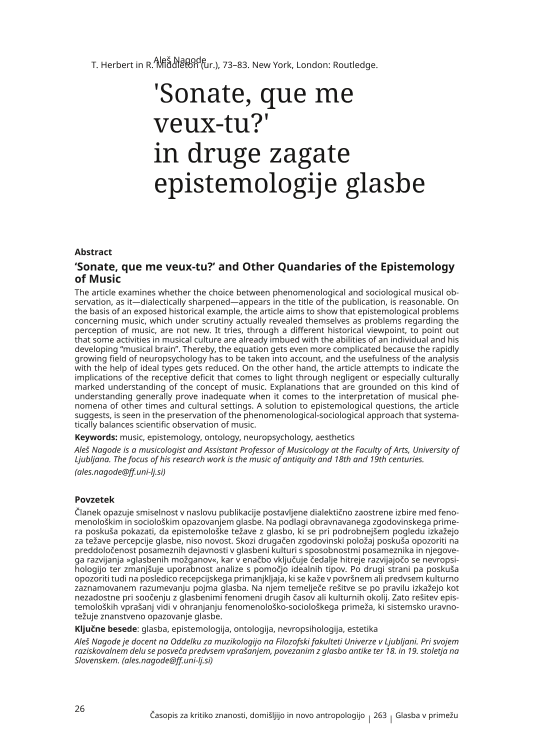The article examines whether the choice between phenomenological and sociological musical observation, as it—dialectically sharpened—appears in the title of the publication, is reasonable. On the basis of an exposed historical example, the article aims to show that epistemological problems concerning music, which under scrutiny actually revealed themselves as problems regarding the perception of music, are not new. It tries, through a different historical viewpoint, to point out that some activities in musical culture are already imbued with the abilities of an individual and his developing “musical brain”. Thereby, the equation gets even more complicated because the rapidly growing field of neuropsychology has to be taken into account, and the usefulness of the analysis with the help of ideal types gets reduced. On the other hand, the article attempts to indicate the implications of the receptive deficit that comes to light through negligent or especially culturally marked understanding of the concept of music. Explanations that are grounded on this kind of understanding generally prove inadequate when it comes to the interpretation of musical phenomena of other times and cultural settings. A solution to epistemological questions, the article suggests, is seen in the preservation of the phenomenological-sociological approach that systematically balances scientific observation of music.




